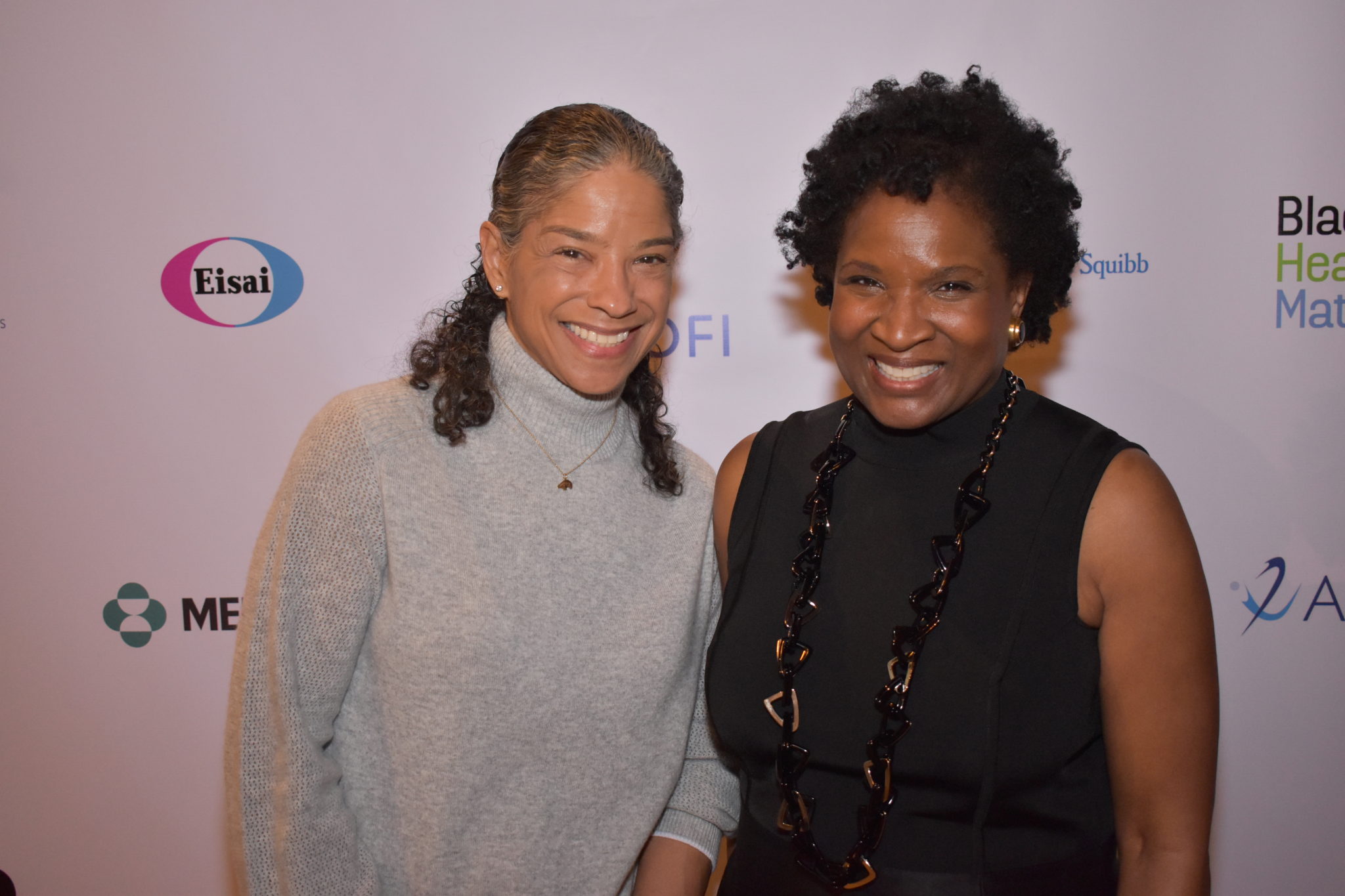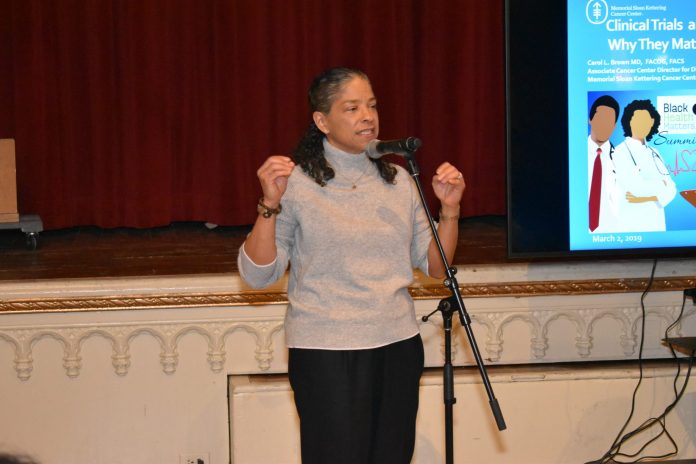“Blacks have the worst survival of all cancers.” With that frank statement, Carol Brown, M.D., associate cancer center director for diversity and health equity at Memorial Sloan Kettering Cancer Center in New York, opened her presentation at the Third Black Health Matters Health Summit at Riverside Church in Harlem earlier this month.
Brown then delved into how scientific research aimed at developing better treatments for specific diseases is being done all over the country every day, but she pulled no punches about the lack of inclusion of African Americans in this research.
“They say it’s all in the genes,” Brown said. “That’s very true. What’s in the genes is something about the type of cancer that African American men and women get is different than the type they have in Sweden. Prostate cancer, breast cancer, colon cancer, uterine cancer, multiple myeloma—these are the cancers with huge disparities. We need men and women of African descent to participate in trials.”
Brown also outlined how ageism can play a part in keeping us out of medical research.
“Government agencies say women after age 65 with adequate screenings for the previous five years, no longer need Pap smears,” Brown said. “This isn’t true. The death rates start increasing exponentially after age 65. Many of us are sexually active after age 65. If you have a cervix after age 65, you still need to get screened.”
But the biggest indicator of cancer diagnosis and survival? Poverty. It’s even bigger than race, Brown said. “If you have Medicaid, you do worse with breast cancer no matter what color you are, even worse than people with no insurance.
“Medicare Advantage plans do not let you go to NYU or Sloan Kettering. They want you to go where the care is cheapest. You don’t want cheap cancer care. You want the best cancer care.”
Where is that care? According to Brown, most cancer centers have programs dedicated to eliminating disparities. It is at these centers where cutting-edge scientific study is done. And it’s critical for black folks to be part of that research.
“You’re going to get the best, latest advances and better care,” she said. “You can help get rid of some of these disparities, particularly if you’re a person of color. Clinical research plus underserved populations equals cancer health equity.”
So why are so few of us taking part in clinical trials? The easy answer is our fear of research borne out of medical experimentation—think: Tuskegee Experiment and Henrietta Lacks. But the truth is that most people aren’t old enough to remember this mistreatment.
Brown suggested the culprit is deeper than that.
Some of our reluctance centers around cost. We worry we won’t be able to afford the treatment. “Medicare does cover all of the costs associated with participating in a clinical trials,” she said, giving credit for this to legislation passed during Bill Clinton’s administration. “Medicaid does not. But there’s a bill in Congress right now to make this mandatory for Medicaid. There is no study in New York City where someone should not be given access to a clinical trial because of costs.”
Another roadblock to minority involvement in clinical trials comes from the medical profession itself.
“A lot of oncologists assume poor patients, homeless patients, old patients, or patients of color won’t be able to deal with this clinical trial, so they think, ‘I’m not going to tell them about it,’” Brown said. “We have to get past that.
Sloan Kettering works hard to avoid those assumptions. It’s not the only center actively seeking people of color for research, but it’s the place Brown knows best. “We are very aggressive about informing patients about research and clinical trials,” she said.
Today’s cancer treatment is all about precision medicine. This is where a test tells each patient what their particular cancer looks like from a DNA standpoint.
“We learn a way to manipulate this cancer by taking your cancer and your blood and mapping the genome. We can target the mutations in the cancer genome,” Brown said. “New drugs are being developed every day. How? By clinical trials. Participating in a clinical trial is the best way for people of color affected by cancer to level the playing field.”
Read about the 3rd Black Health Matters Summit Recap here: https://www.blackhealthmatters.com/summitsouth/recap2019/







